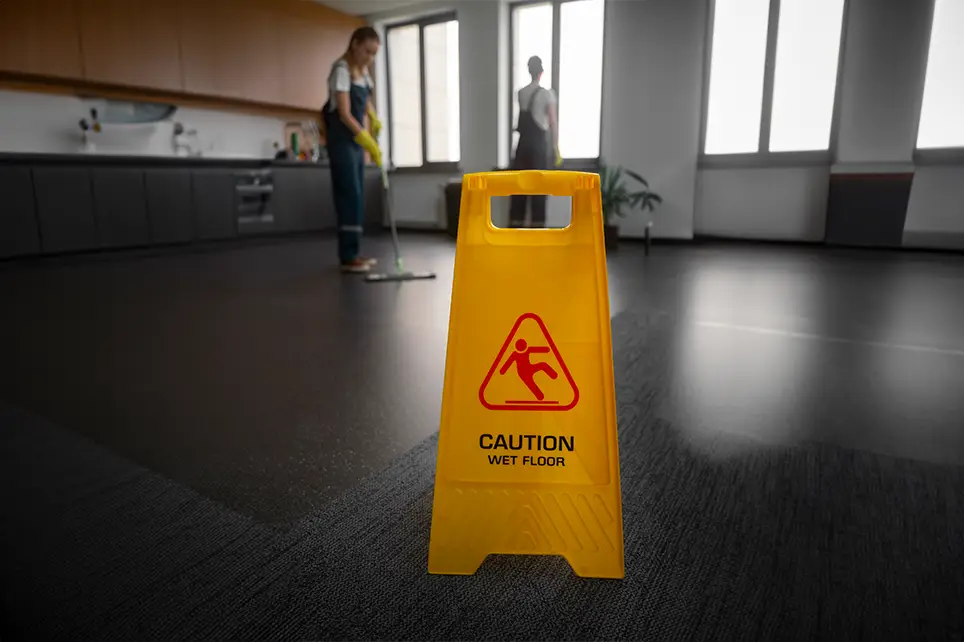
Your Bridge to Justice
Are you seeking justice in Australia? Don’t navigate the legal maze alone. Make a Claim is your dedicated platform to support your legal rights with confidence.
Your Bridge to Justice
Are you seeking justice in Australia? Don’t navigate the legal maze alone. Make a Claim is your dedicated platform to support your legal rights with confidence.

How It Works
Lorem ipsum dolor sit amet, consectetur adipiscing elit. Sed do eiusmod tempor incididunt ut labore et dolore magna aliqua. Lorem ipsum dolor
Watch our quick video to learn how easy it is to get started.

About Make a Claim
There's More Ahead Than Just Financial Goals.
At Make a Claim, we understand that sometimes, when things go wrong, more than one thing goes wrong. Families, when under pressure, don’t know who to turn to. Very often, they are left to struggle without the right support, and it feels like there’s no hope. We are dedicated to making the Australian legal process accessible and understandable for everyone, including families. By connecting you with legal experts who are right for you, our platform empowers individuals in Australia to access their legal rights. While we are not your lawyers, we will know your lawyers, and we will make sure that you are properly supported during the claims process. Explore your claim options OBLIGATION FREE today.
From the minute you contact us, our claims consultants will support you and help you choose the best legal team for your personal situation.
By getting you onto the best pathway to resolve your claim.
Our Recent Posts
All the resources you need to Make a Claim
Our latest news and articles.
Relationships
Marriage is the only contract we celebrate with champagne when it’s signed, and then pretend never existed.
- October 13, 2025
- admin
Frequently Asked Questions
-
How does Make a Claim work within the Australian legal system?
In the Australian legal system, Make a Claim works through several different stages/phases which are as follows:
- Preparation: Before making an actual claim, it is important to gather and obtain all relevant information and documentation so that you may support your case. Documents may include contracts, correspondence, records, photos, and/or statements.
- Determining Jurisdiction: After you have gathered all the information and documentation needed, you will
then need to know which court or tribunal has jurisdiction over your claim.
Note: Jurisdiction typically means the court’s power/authority to try and hear your claim. - Filing your Claim: Once you have determined the proper court/tribunal to file your claim with, you may initiate legal proceedings by filing a formal document which is commonly known as the “claim” said court/tribunal.
- Serving the Claim: After you have filed your claim, the court/tribunal will then direct you to serve a copy of your claim on the other party or any other parties involved in the legal proceedings. The purpose of this is to inform all relevant parties so that they are aware of the legal proceedings going against them and so that they have the opportunity to respond.
- Responding to the Claim: When the other parties are served with the copy of your claim, they will be given ample time to respond. Their response will be made by filing a formal response most commonly known as “Defence”. The Defence outlines the responses of the other parties to the allegations set against them.
- Discovery and Evidence: During the course of the legal proceedings, both parties may engage in a process known as “Discovery”. Discovery is where both parties exchange relevant information and documents related to the claim. Discovery also helps both sides understand the case much better.
- Resolution: Both parties may also opt to resolve the matter either by negotiations, mediations, or any other forms or alternative dispute resolution. The claim will continue to trial if a settlement cannot be reached. During the trial, the judge or jury will hear the evidence and arguments of both sides.
- Judgement: Once both sides have finished presenting their evidence and arguments, the court/tribunal will then issue a judgment that will determine the outcome of the claim. This may involve the awarding of damages, issuance of injunctions, or other appropriate orders.
- Appeals: In some cases, either party has the right to appeal the decision of the court to another higher court based on specific grounds.
-
How does Make a Claim work within the Australian legal system?
In the Australian legal system, Make a Claim works through several different stages/phases which are as follows:
- Preparation: Before making an actual claim, it is important to gather and obtain all relevant information and documentation so that you may support your case. Documents may include contracts, correspondence, records, photos, and/or statements.
- Determining Jurisdiction: After you have gathered all the information and documentation needed, you will
then need to know which court or tribunal has jurisdiction over your claim.
Note: Jurisdiction typically means the court’s power/authority to try and hear your claim. - Filing your Claim: Once you have determined the proper court/tribunal to file your claim with, you may initiate legal proceedings by filing a formal document which is commonly known as the “claim” said court/tribunal.
- Serving the Claim: After you have filed your claim, the court/tribunal will then direct you to serve a copy of your claim on the other party or any other parties involved in the legal proceedings. The purpose of this is to inform all relevant parties so that they are aware of the legal proceedings going against them and so that they have the opportunity to respond.
- Responding to the Claim: When the other parties are served with the copy of your claim, they will be given ample time to respond. Their response will be made by filing a formal response most commonly known as “Defence”. The Defence outlines the responses of the other parties to the allegations set against them.
- Discovery and Evidence: During the course of the legal proceedings, both parties may engage in a process known as “Discovery”. Discovery is where both parties exchange relevant information and documents related to the claim. Discovery also helps both sides understand the case much better.
- Resolution: Both parties may also opt to resolve the matter either by negotiations, mediations, or any other forms or alternative dispute resolution. The claim will continue to trial if a settlement cannot be reached. During the trial, the judge or jury will hear the evidence and arguments of both sides.
- Judgement: Once both sides have finished presenting their evidence and arguments, the court/tribunal will then issue a judgment that will determine the outcome of the claim. This may involve the awarding of damages, issuance of injunctions, or other appropriate orders.
- Appeals: In some cases, either party has the right to appeal the decision of the court to another higher court based on specific grounds.
-
Is my information secure under Australian privacy laws?
Yes. Your information is secured and covered by several legislations covering privacy. Generally, your information is protected by the Privacy Act 1988 (Cth), the Telecommunications Act 1979 (Cth), and other doctrines and principles in Common Law covering your privacy.
However, even though your information is secured by multiple legislations enacted to protect them, we all have the duty to ensure that we keep our information as secure as possible as well. After all, the level of protection to your information may vary depending on the circumstances of its collection, disclosure and use.
It is best to always keep your sensitive information secured and disclose it only to recognized and trusted government branches and trusted agencies. Staying informed about your privacy rights and obligations is always a great way to ensure that your information are being handled to the best of your interests.
To help you in keeping your information secured under Australian privacy laws, you can take the following proactive steps:
- Understand your Privacy Rights: You can start by familiarizing yourself, or asking your dedicated lawyers, about what rights do you have under Australian Privacy Laws. In this way, you can make well-informed decisions and ensure that your data and information is processed to the best of your interest.
- Be Wary of Scams and other Fraudulent Activities: Always exercise caution when responding to correspondence that you have received from an unknown sender. It is best to never respond to these types of correspondence and only respond to those with verified addresses and information you recognize and trust.
- Be Mindful of Sharing Your Information: Always stay cautious when providing your information to any entities you transact with. It’s best to limit the amount of information you disclose and if possible, never disclose any information at all unless necessary.
-
What types of claims can I make in Australia?
In Australia, you can make the following claims:
- Motor Vehicle Accident Claims: If you are injured in a motor vehicle accident, you can make a Motor Vehicle Accident Claim in Australia.
- Workers’ Compensation Claims: If you are bullied or injured because of your work, you can make a Workers’ Compensation Claim.
- Medical Negligence Claims: You may file a Medical Negligence Claim if your doctor or hospital has failed to diagnose your condition in time or if they messed up your surgery.
- Abuse Claims: In the event that you suffered any type of abuse whether sexual, physical, or emotional while you are in the care of an institution, which includes a school.
- Employee Claims: An Employment Dispute may be made if your employer has unfairly dismissed you or if you believe that your employer did not properly dismiss you according to what the law says.
- Consumer Rights Claims: This claim is for when banks or any other financial institutions overcharges you for their services. You may file a claim under Consumer Rights against your greedy financial institutions that are overcharging you for an absurd amount.
- Insurance, Super and TPD Claims : You may file an Insurance Claim if your insurance company stopped paying or refused to pay you.
- Estate Claims: You may make an Estate Claim if you have been unjustly left out of a Will or given less than others in your family.
- Family Law Claims: You may make a Family Law Claim if you have been left by partner without any resources to provide for your children’s needs and unable to pay for your accommodations.
-
How long does the process take in the Australian legal system?
The duration of a legal proceeding in the Australian legal system may vary depending on the type of claim and on the present circumstances. There are a lot of factors that may affect the length of time it takes to process your claim.
It’s important to remember as well that each court and tribunal have their own timelines and schedules. A court or tribunal will process your claim on their best availability within a specified time frame. Additionally, factors such as your availability, the availability of your witnesses and experts, procedural delays, and the complexity of your claim may impact the duration of the legal proceedings.
However, despite the variabilities that may affect the length of time that would be required to process your claim, both parties may take steps to expedite this process. For example, both parties may engage in an early settlement negotiation or agree to alternative dispute resolution methods in order to expedite the claim.
You can also rest assured that the Australian legal system is working tirelessly and efficiently to keep working times at a minimum and the costs to process claims low. The Australian legal system will always provide you with the best possible timeframe in processing your claim. -
How much does it cost to make a claim in Australia?
The cost of making a claim in Australia depends on many different factors. Factors such as the type of claim, the complexity of the case, the jurisdiction in which the claim is being heard and other possible variables may have an impact on the amount of the costs.
You may also see the following considerations regarding the costs associated with making a claim in Australia:- Court or Tribunal Fees: In most cases, the court or tribunal will impose a fee associated with filing a claim. These fees may differ depending on the type of claim. These fees include filing fees, hearing fees, and other court-related expenses.
- Legal Costs: If you have sought legal representation, you will typically incur legal costs associated with hiring a lawyer or solicitor. Similar to Court or Tribunal Fees, the fees may differ depending on the type of claim. Such fees may be in the form of the lawyer or solicitor’s hourly rates, fixed fees, and/or contingency feees.
- Disbursements: In addition to both Court fees and your lawyer’s fees, you might encounter costs associated with disbursements. Disbursements are out-of-pocket expenses incurred by your lawyer or by the court and they are expenses associated with the general processing and furtherance of your claim. This type of fee depends on the nature of your claim and the evidence or documentation required for it.
Get In Touch
Our team is here to help you. 💬
making a claim in Australia?

“After 18 months of frustration dealing with my income protection insurer, I didn’t know what to do. They kept giving me the run around and refused to pay. They never actually told me the reason why they weren’t paying me the monthly income protection that I had insured myself for once I very ill.
My debts were building up and we had to rely on savings and my wife’s income to survive. I was frustrated and also fearful but they were not going to pay at all. Eventually I took action and spoke with people at Make a Claim. They pointed me in the right direction and matched me with the legal team that got the job done. Within six months, I had a cheque in my bank account for all the money that they owed me plus interest. The insurer has continued to pay me to this day.”
Chris K
Lane Cove, New South Wales, Australia
“When my accident first happened, I didn’t realise how serious my injuries could become. Initially, I dusted myself off and pretended that nothing had happened in my own head. I was annoyed at what the other driver had done but I did not want to get to me so I thought the best way would be just to ignore it and get on with things. I ended up needing two hip replacements. Thankfully, I spoke to the people at Make a Claim, and had it not been for them, and my legal team, I would not be in the situation I am now, where I can afford to get on with life.
The staff at Make a Claim were fantastic from start to finish. I felt supported. I was treated with dignity and respect throughout the whole process. I can’t thank the staff at Make a Claim enough. Without them I don’t know how I would have been able to navigate the complex and frustrating process. Thank you Make a Claim - I have achieved a settlement way beyond my expectations and my family and I have been able to get on with life again.”
Tony P
Mascot, New South Wales, Australia
Firms in Focus


















